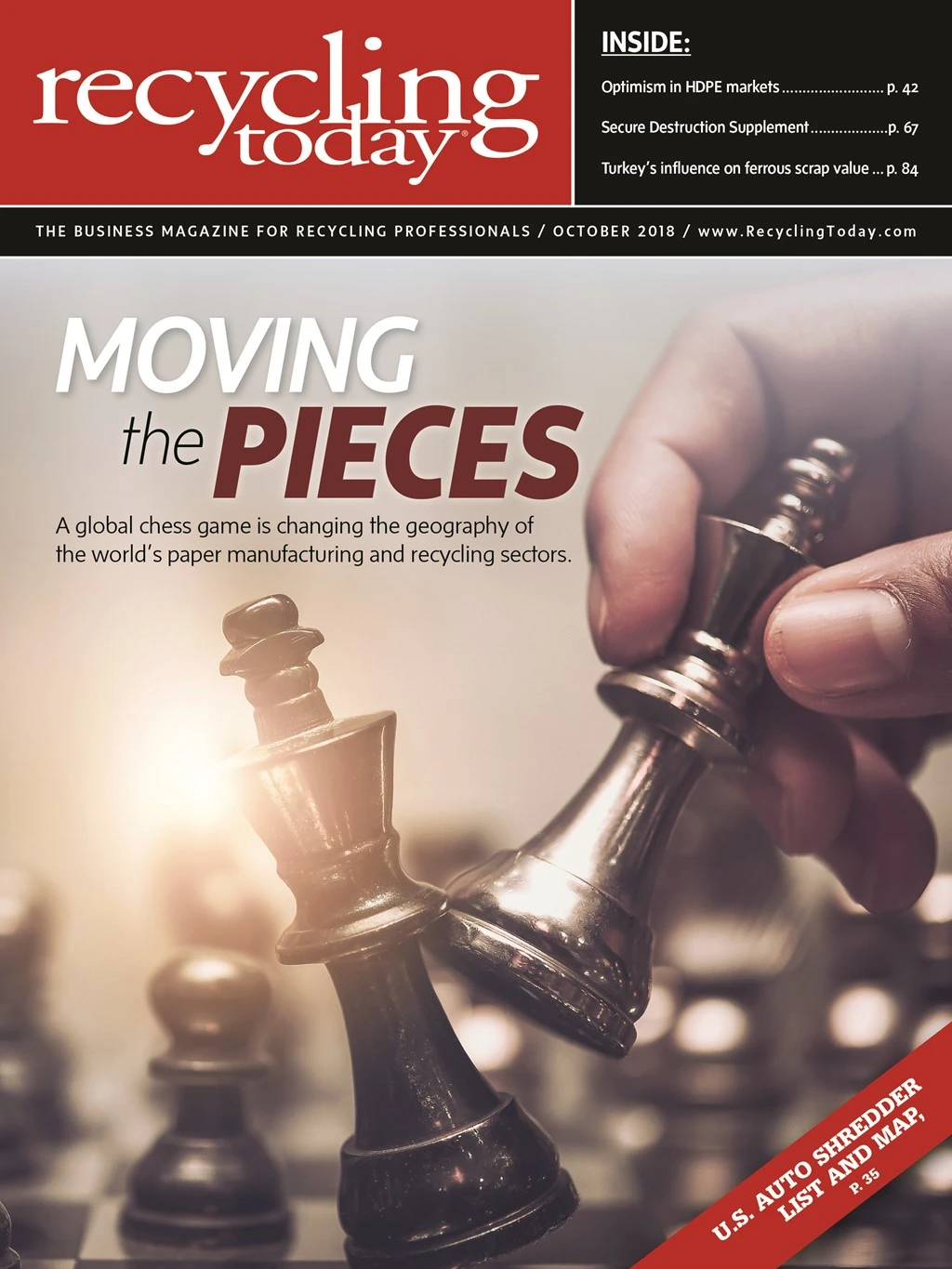Plastic packaging has been the object of much derision lately, largely because of the amount of this material that makes it into the world’s oceans and waterways. As much as 8.8 million tons of plastic enter the oceans annually, according to some estimates. The plastic straw has joined the single-use plastic bag as a target of bans, with California becoming the first state in the U.S. to regulate their distribution when Gov. Jerry Brown signed Assembly Bill No. 1884 into law Sept. 20.
In an attempt to address the issue of ocean-bound plastics, Norway’s government has proposed to the Basel Convention secretariat that plastic waste and scrap be removed from Annex IX (wastes not covered in the convention) and added to Annex II (categories of waste that require special consideration, or “other wastes,") thereby placing plastic waste and scrap within the scope of the Basel Convention.
In addition, earlier this year at the direction of the Basel Convention Conference of Parties, an Expert Working Group began to review the legally binding annex of the convention that pertains to what is considered hazardous materials and the annex that determines disposal and recycling operations. The European Commission has proposed redefining certain recycling processes as “treatment” rather than recycling.

If adopted, these proposals could reshape the recycling industry and how scrap commodities are traded, according to the Institute of Scrap Recycling Industries (ISRI), Washington, which notes that 8.9 million metric tons of this material with a value of $4.3 billion were traded globally in 2017. In that same year, the U.S. exported 1.67 million metric tons of plastic scrap with a value of $633 million.
Regarding the European Commission’s proposal, the Brussels-based Bureau of International Recycling (BIR), of which ISRI is a member, says it “intends that its members’ manual and mechanical operations—such as dismantling, sorting, compacting, pelletizing and shredding—are correctly allocated in Annex IV as recovery and recycling operations.”
The global trade of recycled plastics already has been affected by China’s import restrictions on plastic scrap imports. Postconsumer plastic film and mixed plastics bales have felt the effects of China’s regulations most acutely. A reprocessor based on the West Coast says the U.S. market has been flooded with film bales, pricing for which has declined steeply, as a result of China’s actions. He says some U.S. companies that recently installed film recycling lines likely are enjoying nice margins because of the abundance of film bales on the market at low prices.
“It’s a mixed report for plastics,” he says. “People who were concentrated on export have lost money and are hurting.”
The reprocessor adds that his company has been able to hold its own given that 95 percent of the material it handles is sold domestically.

Explore the October 2018 Issue
Check out more from this issue and find your next story to read.
Latest from Recycling Today
- Orion ramping up Rocky Mountain Steel rail line
- Proposed bill would provide ‘regulatory clarity’ for chemical recycling
- Alberta Ag-Plastic pilot program continues, expands with renewed funding
- ReMA urges open intra-North American scrap trade
- Axium awarded by regional organization
- Update: China to introduce steel export quotas
- Thyssenkrupp idles capacity in Europe
- Phoenix Technologies closes Ohio rPET facility





